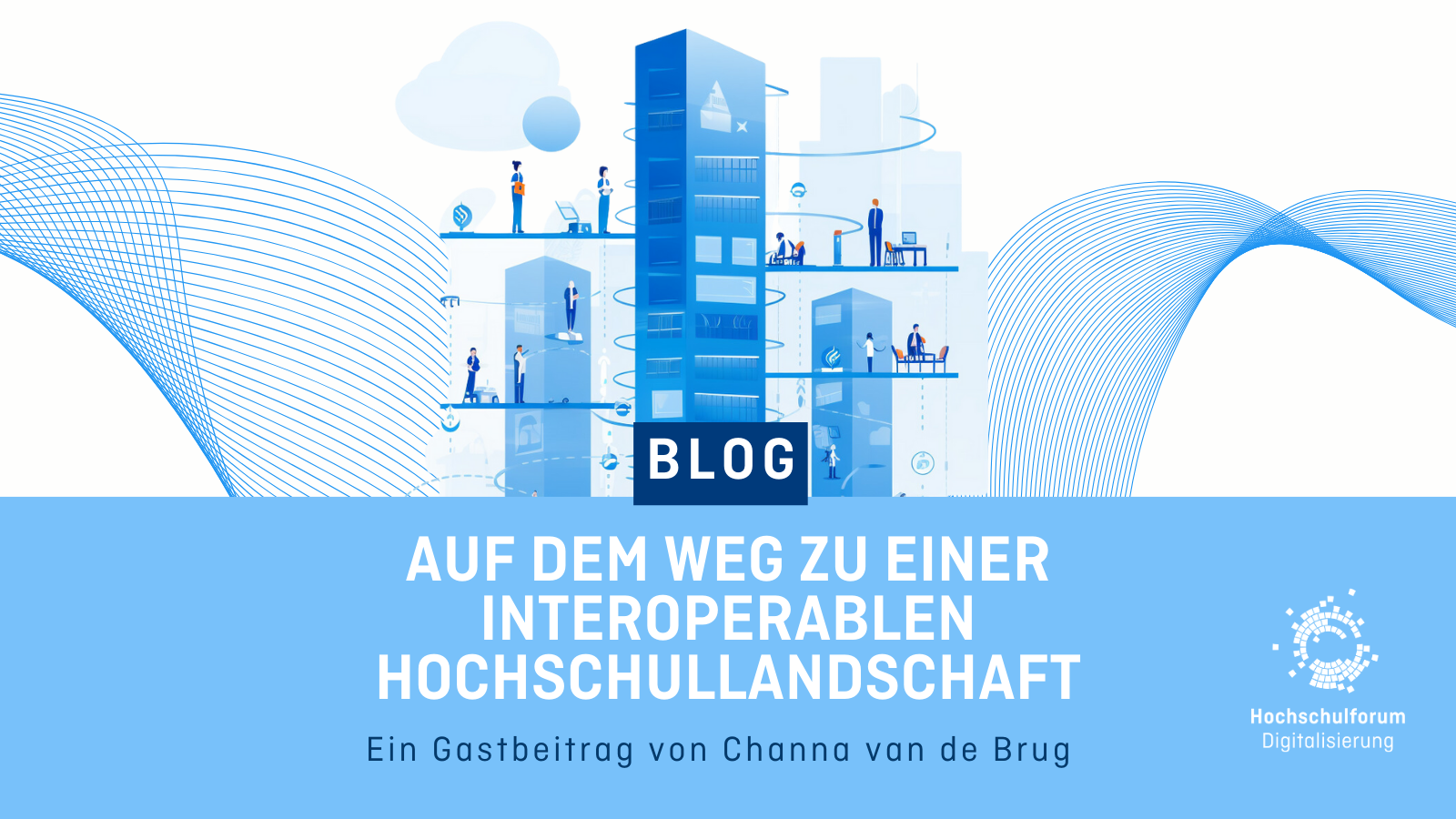Zwischen Randnotizen und Klausurenklinik: Videokorrektur juristischer Klausuren
Zwischen Randnotizen und Klausurenklinik: Videokorrektur juristischer Klausuren
27.08.19
Im Gastbeitrag erklären Sven Störmann, Projektleiter E-Learning am Zentrum für juristisches Lernen (ZJL), und Jonathan Schramm, persönlicher Referent der Geschäftsführung (beide Bucerius Law School, Hamburg), die Vorteile eines individuellen Feedbacks durch die Videokorrektur als Alternative zur konventionellen Klausurkorrektur am Beispiel der Examensvorbereitung im Jurastudium.
![Ein besserer Blick durch Videoauswertung? Foto: [https://unsplash.com/photos/Vrv_nZHaFTc timJ] Ein besserer Blick durch Videoauswertung?](/sites/default/files/images/blog/timj-Vrv_nZHaFTc-unsplash.jpg)
Examensvorbereitung im Jurastudium
Wer das Studienfach Rechtswissenschaft wählt, bei dem läuft am Ende alles auf das Schreiben der schriftlichen Examensprüfungen hinaus: sechs Klausuren, jeweils fünf Stunden Zeit und bei einem Anteil der Ergebnisse von 52,5 % an der Gesamtnote eine entsprechend hohe Stresssituation.
Damit die Studierenden auf diese “alles oder nichts”-Prüfungssituation am Ende des Studiums optimal vorbereitet sind, entscheiden sich die meisten Studierenden nach Ende der regulären Studienzeit – also nachdem alle Voraussetzungen zur Meldung für die staatliche Pflichtfachprüfung erfüllt sind – für eine gezielte Vorbereitung auf dieses Prüfungsformat.
Dabei gibt es unterschiedliche Vorgehensweisen. Die Optionen reichen von der Vorbereitung auf eigene Faust, über hochschulinterne Vorbereitungskurse (“Uni-Rep”) bis zu kommerziellen Repetitorien, die es übrigens schon seit dem Ende des 18. Jahrhunderts gibt, weil die Fakultäten sich damals weigerten, das neue Preußische Landrecht zu unterrichten.
Da die erste staatliche Pflichtfachprüfung nach ihren eigenen Regeln spielt und neben dem juristischen Fachwissen insbesondere Zeitmanagement, das schnelle handschriftliche (sic!) Schreiben sowie prüfungstypisches Formulieren und Argumentieren abprüft, ist es in jedem Fall sinnvoll, in Vorbereitung auf die Prüfungen regelmäßig unter Prüfungsbedingungen solche fünfstündige Klausuren zu schreiben.![Kann man trotzdem noch per Hand schreiben? Oder per Steine legen? Foto: [https://unsplash.com/photos/xcVW_sFp4jQ Melinda Gimpel] Scrabble in der Juristerei](/sites/default/files/images/blog/melinda-gimpel-xcVW_sFp4jQ-unsplash.jpg)
Dazu bieten inzwischen alle Fakultäten einen Examensübungsklausurenkurs an.
An der Bucerius Law School schreiben die Studierenden jeden Freitag von 8:30 bis 13:30 Uhr eine „ExÜ“, die sie ca. 10 Tage später in korrigierter Form zurückerhalten. Bislang bestand die Korrektur klassisch aus Randnotizen und einem abschließenden Votum einschließlich Benotung. Gleichzeitig bietet das Zentrum für juristisches Lernen (ZJL) an der Bucerius Law School schon seit vielen Jahren und sehr erfolgreich Klausurenkliniken an. Studierende können sich an die Mitarbeiterinnen und Mitarbeiter des ZJL wenden und ihre Klausur in einem persönlichen Gespräch detailliert besprechen.
Konventionelle Korrekturen bedeuten verglichen mit Klausurenkliniken natürlich wesentlich weniger Aufwand für alle Beteiligten, erreichen aber bei Weitem nicht denselben Grad an Individualisierung und inhaltlicher Tiefe wie Klausurenkliniken und sind naturgemäß auch Qualitätsschwankungen unterworfen.
Die Klausurenklinik bietet außerdem neben dem inhaltlichen Abgleich mit der Lösungsskizze, auf den klassische Korrekturen oft beschränkt sind, auch eine Analyse der Methodik und “Klausurtaktik”. Zu bedenken ist außerdem, dass die Anfrage einer Klausurenklinik durchaus der Überwindung einer gewissen Hemmschwelle bedarf – Studierende müssen zunächst erkennen, dass Unterstützung für sie in der aktuellen Situation hilfreich oder nötig ist und dann die leider oft vorhandene Hemmung, dieses Angebot anzunehmen, überwinden. Beide bisherigen Formate zur Nachbearbeitung von Übungsklausuren haben also jeweils Vorteile, aber auch dem Format inhärente Nachteile.
Es gibt eine Lücke zwischen der sehr guten, aber aufwendigen Klausurenklinik und der weniger motivierenden und hilfreichen klassischen Korrektur, die dafür viel weniger Aufwand bei Studierenden und Korrigierenden bedeutet.
Die Lücke – didaktische Überlegungen

Wir waren also auf der Suche nach einer Lösung, die diese Lücke zwischen konventioneller Korrektur und Klausurenklinik schließt – die also individueller, inhaltlich besser und niedrigschwelliger ist als Randnotizen und ein kurzes Votum, die aber andererseits nicht so viel Aufwand macht wie eine klassische Klausurenklinik.
Der Hauptgrund für den Wunsch nach individuellerer und besserer Rückmeldung war es, die Studierenden so zu einer intensiveren Auseinandersetzung mit der Übungsklausur zu motivieren und in der Folge den Lernerfolg zu steigern. Die Auseinandersetzung sollte sich gerade nicht allein auf das Ablesen der erhaltenen Note beschränken. Übungsklausuren sind zeitaufwendig, so dass es nahe liegt, den Lernerfolg der so investierten Zeit für die Studierenden soweit wie möglich zu optimieren.
Wie also die ressourcenmäßigen Vorteile einer konventionellen Korrektur mit der Qualität und dem Motivationsschub eines individuelles Feedback im Rahmen der Klausurenklinik vereinen? Eine klassische Automatisierung ist aufgrund des zu korrigierenden Fließtextes nur schwer umzusetzen. Andere Prüfungsformate kommen wegen des Trainingscharakters für die Staatsprüfung nicht Betracht.
Seit April 2018 wird zur Lösung dieses Problems an der Bucerius Law School ein für uns neuer Modus zur Korrektur von Examensübungsklausuren genutzt. Statt einer konventionellen Korrektur mit Randbemerkungen und einem abschließenden Votum, erhalten die Studierenden eine Videodatei. In dieser ist die Bildschirmaufzeichnung des Korrektors oder der Korrektorin zu sehen, während diese/r die gescannte Klausur des Kandidaten oder der Kandidatin durchgeht. Die Studierenden sind also “live” dabei, während ihre Klausur korrigiert und besprochen wird. Die dafür nötige Hard- und Software wird von der Hochschule bereitgestellt.
Das von Sven Störmann, Projektleiter E-Learning am Zentrum für juristisches Lernen (ZJL), gemeinsam mit Dr. Olivia Czerny, Sylvan Gäbhard und Victor Thonke entwickelte und erprobte Konzept der Videokorrektur ermöglicht es jetzt, individueller auf Stärken und Schwächen einer Fallbearbeitung einzugehen, und soll beim Korrigieren dazu motivieren, auch weniger kern-juristische Optimierungsmöglichkeiten aufzuzeigen, und das Gefühl für die Klausurtaktik stärken. Den Studierenden wird der Blick durch die Brille des Korrektors ermöglicht. Auf Seite der Korrigierenden besteht dabei größtmögliche Flexibilität: Eine Klausur kann abschnittsweise oder am Stück durchgelesen und korrigiert werden, Änderungen der Videokorrektur sind möglich und die mündliche Besprechung kann bei Bedarf durch Anmerkungen, Unterstreichungen oder andere Visualisierungen ergänzt werden. Dass grundsätzlich mündlich besprochen wird, senkt nach unserer Erfahrung die Hemmschwelle der Korrigierenden auch informelle Tipps und Hinweise zu geben, oder auf Vertiefungs- und Wiederholungsmöglichkeiten hinzuweisen.
Gleichzeitig erlaubt die Bildschirmaufzeichnung der Kandidatin oder dem Kandidaten jederzeit zu wissen, “wo” in der Klausur man sich gerade befindet und motiviert zur inhaltlichen Auseinandersetzung mit der eigenen Ausarbeitung, da ein kurzes Aufschlagen der letzten Seite mit der Note nicht ohne Weiteres möglich ist.
Nicht zuletzt löst die Digitalisierung von Klausurkorrekturen auch ein ganz praktisches Problem: Gerade in Städten wie Hamburg konkurriert man als Hochschule mit einer Vielzahl attraktiver Arbeitgeber um die besten Absolventinnen und Absolventen. Ein weitgehend ortsungebundener Prozess ermöglicht es hier, auch Korrektorinnen und Korrektoren zu gewinnen, die nicht in Hamburg oder der näheren Umgebung leben.
Videokorrektur juristischer Klausuren: Umsetzung
Das an der Bucerius Law School umgesetzte Projekt hat die Korrektur von Klausuren dabei natürlich nicht neu erfunden, sondern nur an bestehenden und durch die Digitalisierung beweglichen Stellen geschraubt und dabei auf Erfahrungen, die in anderen Fächern bereits gemacht wurden, zurückgegriffen. Explizit gewünscht war auch, das Vorhaben sozusagen “gebootstrapped” umzusetzen, d.h. mit vorhandenen Mitteln und zunächst ohne größeren Entwicklungs- oder Implementierungsaufwand. So konnte man schnell zu einem Prototypen kommen und Feedback der Beteiligten einholen. Außerdem werden nicht immer alle Übungsklausuren auf diese Weise korrigiert, sondern zur Erprobung nur ein Anteil von 10 bis 20 Prozent.
![Videokorrektur in Jura. Foto: [https://unsplash.com/photos/4qGbMEZb56c Thomas William] Juristen filmen](/sites/default/files/images/blog/thomas-william-4qGbMEZb56c-unsplash.jpg)
Aktuell läuft die Korrektur von Examensübungsklausuren im Rahmen der Videokorrektur wie folgt ab:
- Abhängig von den bisher erhaltenen Videokorrekturen bestimmt ein Algorithmus, wer eine Videokorrektur und wer eine konventionelle Korrektur erhält.
- Nach der Abgabe der Klausuren durch die Studierenden werden die entsprechenden Klausurbearbeitungen händisch gescannt und im Cloudspeicher abgelegt.
- Anschließend wird die Klausur über den Cloudspeicher für den Korrektor freigegeben.
- Die anschließende Korrektur erfolgt in “Echtzeit” entlang der Bearbeitung wie oben beschrieben.
- Die Studierenden erhalten die Korrektur per Mail-Link zum Herunterladen als Videodatei über den Cloudspeicher.
Wie eine solche Videoorrektur von Klausuren aussieht, ist in folgendem Video beispielhaft zu sehen.
Ausblick und weitere Schritte
Die systematische Evaluation des neuen Korrekturmodus steht noch aus. Die Studierenden machen bislang aber regen Gebrauch von der Möglichkeit, individuell Feedback zum Konzept zu geben. Dieses fällt fast durchgehend positiv und sehr konstruktiv aus, so dass sich der Modus entlang der Wünsche der Studierenden weiterentwickelt hat und auch künftig wird.![Die digitale Zukunft juristischer Lehre? Foto: [https://unsplash.com/photos/X2CxUXFqKcM Chris Brignola] Eine ungewisse Zukunft?](/sites/default/files/images/blog/chris-brignola-X2CxUXFqKcM-unsplash.jpg)
Wenn es nach den bisherigen studentischen Rückmeldungen geht, ist eindeutig, dass die Videokorrektur die konventionelle Korrektur mittelfristig vollständig ablösen sollte. Sie bietet den Studierenden eine bequeme und effiziente Möglichkeit individuelles Feedback zu erhalten, ohne dass es dazu des erheblichen logistischen Aufwands einer Klausurenklinik bedarf.
Im nächsten Schritt sollen die Abläufe noch weiter automatisiert werden, sodass bestenfalls Scannen, Bereitstellung zur Korrektur und anschließende Verteilung an die Studierenden vollautomatisiert ablaufen. Durch eine Transkription der gesprochenen Korrektur könnte die Korrektur trotz des gesprochenen Wortes durchsuchbar sein.
Eine weitere Entwicklung mit potentiellen Auswirkungen auf die Übungsklausuren zur Examensvorbereitung ist die Digitalisierung der Staatsexamensprüfungen. Sollten diese in Zukunft digital geschrieben werden, würden in der Konsequenz auch die Übungsklausuren digital geschrieben werden, sodass der Schritt des Einscannens automatisch entfallen würde.
Es bleibt abzuwarten, wie sich die Prüfungsanforderungen ändern. Jedenfalls bieten die Videokorrekturen zum jetzigen Zeitpunkt den Korrektorinnen und Korrektoren mehr Flexibilität und machen das Herumschleppen von Papierstapeln obsolet. Die Studierenden profitieren durch eine individuellere Korrektur, zu der sie niedrigschwellig Zugang haben, und werden motiviert, sich mit dieser auch tatsächlich auseinanderzusetzen.
Dass über 90 % aller bisherigen Rückmeldungen diesen neuen Modus der Videokorrektur von Klausuren gegenüber konventionellen Korrekturen bevorzugen, zeigt uns, dass es auch in einem im Grunde seit über 230 Jahren bestehenden System durchaus noch Innovation geben kann (und sollte).



 Channa van der Brug
Channa van der Brug 